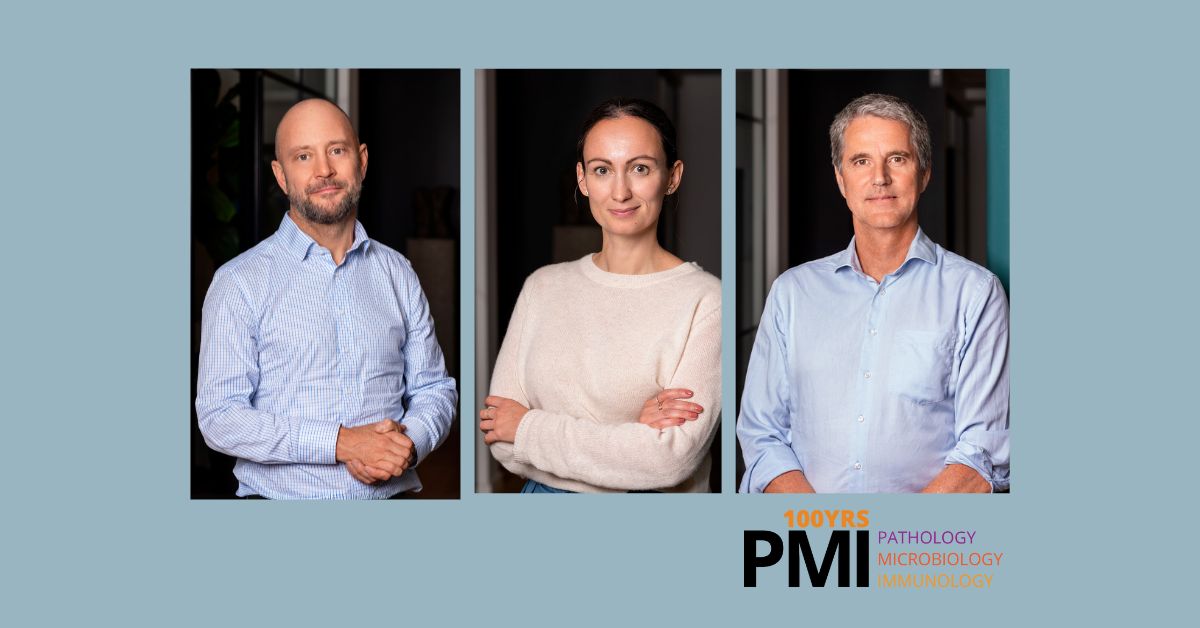2024 marked 100 years of Journal of Pathology, Microbiology and Immunology (the PMI Journal). Throughout the year, a series of anniversary articles highlighted the journal’s history and its role in advancing medical science.
Now, all these contributions have been gathered in a dedicated 100th Anniversary Focus Issue – a collection that both looks back at the breakthroughs of the past century and reflects on how our fields continue to evolve.
Below you can read the editorial from the journal:
Anniversaries often prompt us to pause and reflect on the current state of affairs, providing a moment to review past successes, challenges, and future aspirations. For PMI, our centennial is more than just a temporal milestone—it is a testament to the unwavering pursuit of knowledge that has defined our mission for a century. In all of the thousands of manuscripts we have published lies an extraordinary chronicle of scientific endeavor: the long hours in the laboratories, the iterative cycles of hypothesis and experimentation, the sleepless nights spent dissecting data before that elusive moment of breakthrough. Each article represents not just findings, but the resilience, curiosity, and dedication that propel medical science forward. Examining the journal’s evolution from its inception to the present would undoubtedly provide invaluable insights. However, even without such a retrospective analysis, our very title encapsulates the profound progress and transformative development we have witnessed over the past decade.
Founded in 1924, the journal originally focused on microbiology and pathology, two disciplines united in their quest to understand disease. Microbiology illuminated the identity and behavior of pathogens, while pathology elucidated their effects, fulfilling the causality principle that underpins our understanding of disease mechanisms. For nearly half a century, the journal chronicled the intricate interplay of these two fields, providing a lens through which to examine the natural world.
However, as scientific knowledge expanded, so too did the journal’s scope. By the 1970s, it became evident that the relationship between cause and effect was far more complex than previously understood. The immune system emerged as a critical intermediary, orchestrating responses that could either protect against disease or exacerbate pathology. Recognizing this, we formally incorporated immunology into our disciplinary focus, embracing a more comprehensive approach to understanding host–pathogen interactions.
This evolution mirrors a broader shift in modern medicine. Historically, research centered on the instigator—the pathogen—and its effect—the disease. Naturally, efforts focused on neutralizing the causative agent to prevent harm. Yet over time, the emphasis has expanded to include the host’s response, leading to groundbreaking innovations that manipulate immune function to achieve therapeutic outcomes.
The impact of this paradigm shift is evident across medical science. From aromatase inhibitors, which have transformed the treatment of hormone-sensitive cancers, to CFTR modulators, which have revolutionized care for cystic fibrosis, these advancements exemplify how an integrated understanding of microbiology, pathology, and immunology has reshaped clinical practice. Today, the journal continues to embrace this holistic perspective, fostering research that not only deepens our scientific knowledge but also drives medical breakthroughs.
As we embark on our second century, we remain committed to our founding principles. We will honor the past by advancing the future, continuing to pioneer medical innovations driven by the interdisciplinary synergy of microbiology, pathology, and immunology. Perhaps, a century from now, our future successors will reflect on the breakthroughs of the past 100 years and recognize yet another emerging discipline—one that has once again not only reshaped the name of PMI Journal but also redefined our fundamental understanding of disease and treatment.
Read the 100-years anniversary focus issue here





